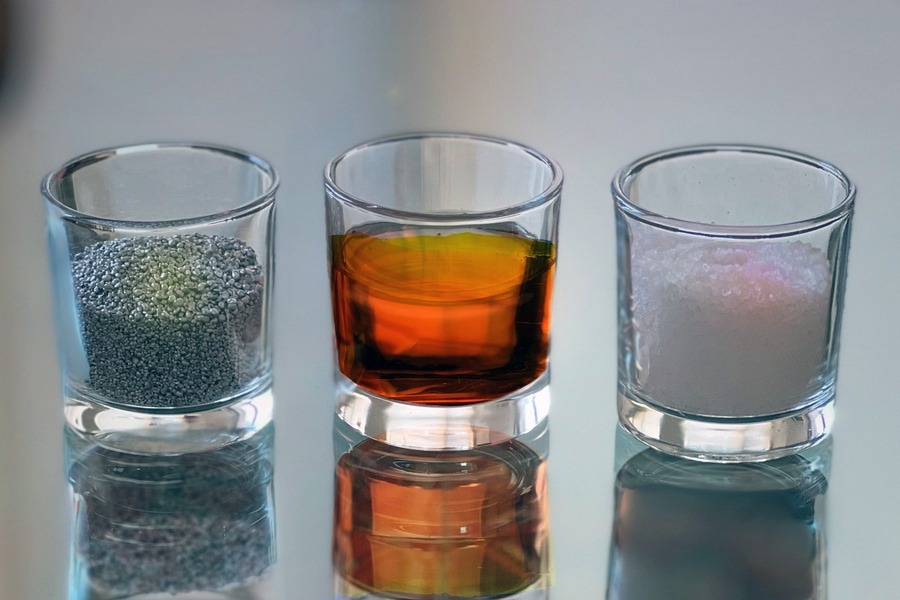With renewable resources on the rise, energy storage is fast becoming a necessity as today’s society is geared towards combatting the energy crisis and reducing dependency on fossil-based fuels.

Image Credit: MIT
However, today’s energy storage solutions, such as lithium-ion (Li-ion) batteries, are not able to meet the demands of large-scale energy performance due to high costs and the technology requirements of specific applications.
Recently, a group of researchers led by a team based at MIT has developed a new type of fast-charging battery, which is composed of abundant materials that are relatively cheap, and could meet sustainable energy storage needs in today’s world.
The battery’s electrodes are composed of aluminum and sulfur as well as molten salts. The research was published in the journal Nature and includes contributions from researchers from Tennessee, Kentucky, Canada, and China.
I wanted to invent something that was better, much better, than lithium-ion batteries for small-scale stationary storage, and ultimately for automotive [uses].
Donald Sadoway, John F. Elliott Professor Emeritus of Materials Chemistry, MIT
Fast-Charging Aluminum
The decision to use aluminum in the development of a new type of battery was a relatively straightforward one as the team was initially looking for an Earth-abundant metal, and aluminum fits the bill as the most abundant metal on the planet as well as readily available on the commercial market.
Furthermore, lithium, which is predominantly used in batteries due to its lightweight and high electrochemical potential, suffers from problems such as being prone to developing dendrites which can cause short circuits and even fires due to the flammable electrolytes used in Li-ion batteries.
Therefore, Sadoway and his team wanted to make sure the second electrode and electrolyte materials they would use would also be safe.
We were not going to use the volatile, flammable organic liquids that have sometimes led to dangerous fires in cars and other applications of lithium-ion batteries.
Donald Sadoway, John F. Elliott Professor Emeritus of Materials Chemistry, MIT
Sulfur presented itself as the best contender for the electrode due to its low-cost, while molten salts were chosen for the electrolytes as they are safer than conventional electrolyte materials and have a comparatively low melting point – just above the boiling point of water.
During the study and development of the aluminum-sulfur battery, the team demonstrated some remarkable results, such as fast-charging capabilities as well as the potential for the battery to withstand a large number of charging cycles.
Crucially, for scalability, the projected cell-level cost of the aluminum–sulfur battery is less than one-sixth that of current Li-ion batteries. Furthermore, due to the abundance of the chosen materials, they can be ethically sourced and function well at moderately elevated temperatures, a combination that meets the requirements of a rechargeable, inexpensive, fire-resistant, recyclable battery.
Molten Salt Benefits
Although the team chose molten salts primarily for their low melting point, they soon noticed that this also had a significant benefit. The new batteries were particularly good at preventing the formation of dendrites.
The chloro-aluminate molten salt “essentially retired these runaway dendrites, while also allowing for very rapid charging,” explains Sadoway.
We did experiments at very high charging rates, charging in less than a minute, and we never lost cells due to dendrite shorting.
Donald Sadoway, John F. Elliott Professor Emeritus of Materials Chemistry, MIT
While the team was not motivated by the need to overcome the dendrite problem, it was a beneficial and welcomed surprise that enabled the team to tackle an issue that has plagued conventional Li-ion batteries.
The molten salts also allow the battery to operate at the required temperatures without the need for additional energy sources, which makes the batteries ideal for all sorts of energy storage applications, including powering a single home or small business facility. This marks the batteries as safe, sustainable storage for renewable energy sources in domestic and small-scale commercial applications.
This new, innovative battery technology is now the foundation for a spinoff company co-founded by Sadoway called Avanti, which has licensed the patents to the system. The first order of business for the Avanti is to demonstrate that the battery technology is able to work at scale.
References and Further Reading
Pang, Q., Meng, J., Gupta, S., Hong, X. and Kwok, C., et al., (2022) Fast-charging aluminium–chalcogen batteries resistant to dendritic shorting. Nature, [online] 608(7924), pp.704-711. Available at: https://www.nature.com/articles/s41586-022-04983-9
Chandler, D., (2022) A new concept for low-cost batteries. [online] MIT News | Massachusetts Institute of Technology. Available at: https://news.mit.edu/2022/aluminum-sulfur-battery-0824
Disclaimer: The views expressed here are those of the author expressed in their private capacity and do not necessarily represent the views of AZoM.com Limited T/A AZoNetwork the owner and operator of this website. This disclaimer forms part of the Terms and conditions of use of this website.